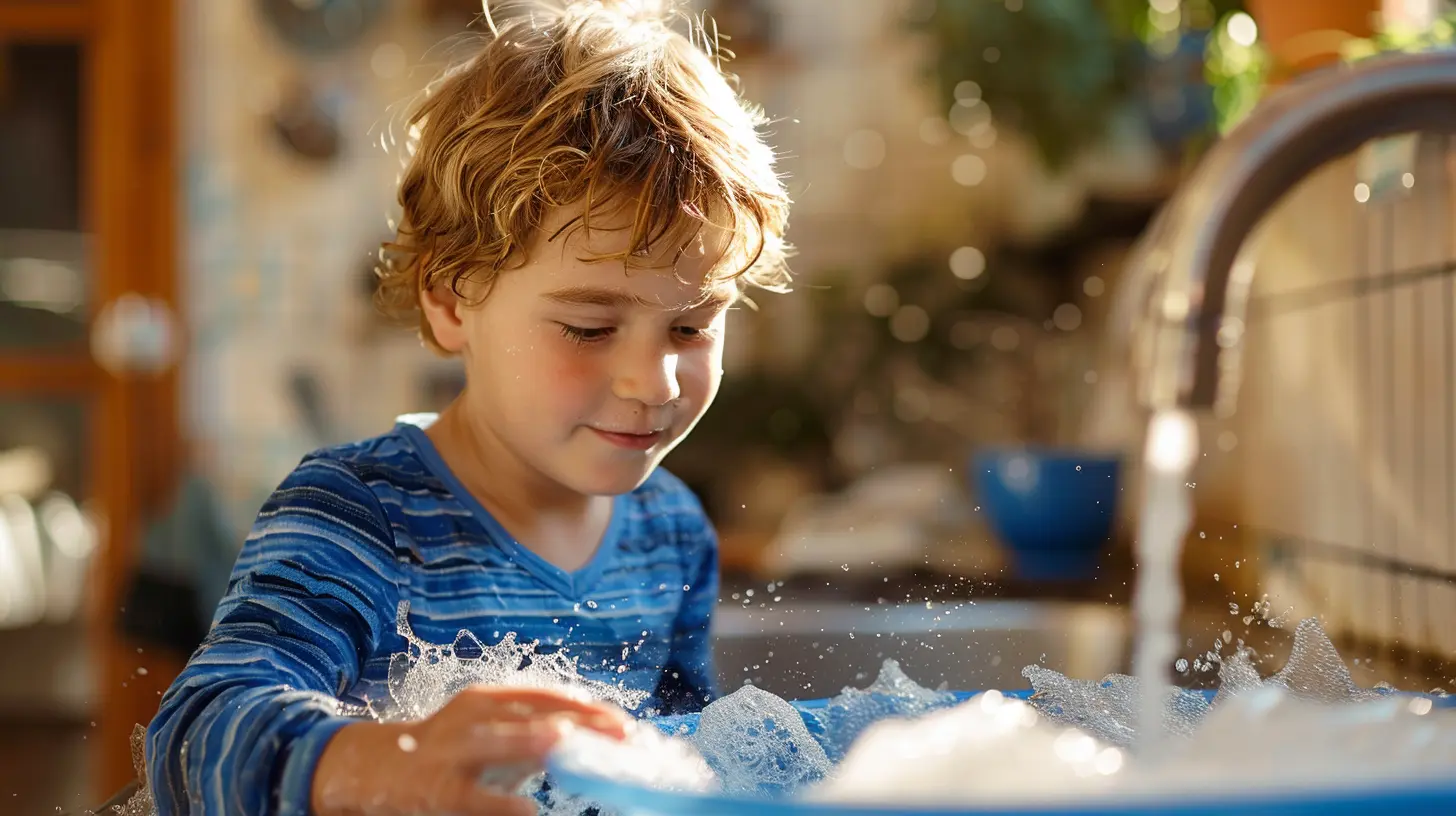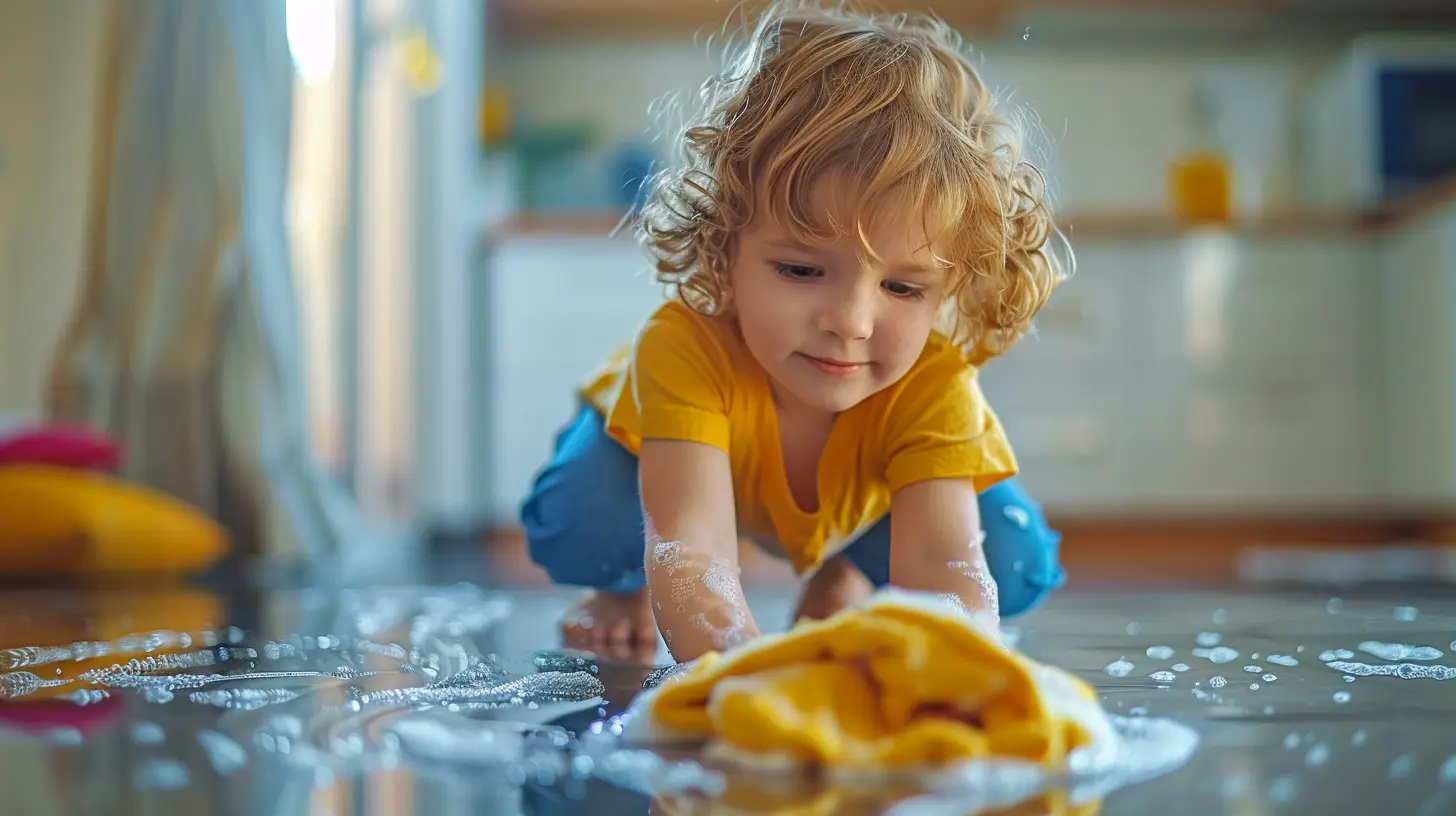Age-Appropriate Chores for Every Stage of Childhood
1 July 2025
Ever feel like you're the only one in the house doing everything while your kids play Minecraft or scroll TikTok? Trust me, you're not alone. Teaching kids responsibility through chores might seem like a battle at first, but it’s one of those parenting moves that pays off big time. Not only are you raising helpful humans (hello, future roommates and spouses will thank you), but you're also giving them important life skills they won’t learn from a screen.
So, where do you even start? What chores can kids actually handle at different ages without turning your kitchen into a crime scene?
Let’s break it down—one age group at a time.
Why Assigning Chores Matters
Before diving into age specifics, let’s set the stage. Chores aren't just about cleaning or ticking items off a list. They're about:- Building responsibility
- Teaching independence
- Creating a sense of contribution to the family
- Boosting self-esteem
- Encouraging teamwork
And hey, it also means less on your plate, which is a win in any parent's book.
Chores for Toddlers (Ages 2–3): The Little Helpers
Yes, they're tiny and squiggly, but toddlers love to help. At this stage, it’s more about letting them feel involved than expecting perfection. Think of it as training wheels for responsibility.What They Can Do:
- Put toys back in the bin- Throw away trash (with supervision)
- Wipe up spills with a towel
- Help feed pets (with an adult guiding)
- Push buttons on the washing machine
- Hand you things while putting laundry away
Tips:
Keep it fun and lighthearted. Sing silly songs while cleaning up or set a timer and race to finish. They’re learning through play, after all!
Chores for Preschoolers (Ages 4–5): Building Independence
Preschoolers want to do everything by themselves—“I do it!” is pretty much their life motto. Take advantage of that enthusiasm!What They Can Do:
- Make their bed (don’t expect military precision)- Help set the table
- Water plants
- Sort laundry by color
- Put dirty clothes in the hamper
- Dust low surfaces
Tips:
Give clear, simple instructions. A chore chart with stickers works wonders here—because what kid doesn’t love stickers?
Chores for Early Elementary (Ages 6–8): Learning Responsibility
Kids in this age group can really start pulling their weight. Their motor skills are better, their understanding of routines is stronger, and they thrive on clear expectations.What They Can Do:
- Pack their lunch (with your help at first)- Sweep floors
- Fold simple laundry items (like towels)
- Load/unload the dishwasher
- Take care of pets (feeding, brushing)
- Take out smaller trash bins
- Wipe tables and counters
Tips:
Introduce a reward system—but not always monetary. Screen time, a special outing, or an extra bedtime story can be great motivators.Chores for Tweens (Ages 9–12): Upping the Ante
Tweens need more structure, and this is a great time to help them understand that with age comes more responsibility (and, yes, freedom too). They might not jump for joy when asked to clean the bathroom, but they'll rise to the occasion if you show them you trust them with more grown-up tasks.What They Can Do:
- Wash dishes- Mow the lawn (with supervision!)
- Cook simple meals (scrambled eggs, pasta)
- Do laundry start to finish
- Vacuum and mop floors
- Clean their room thoroughly
- Walk the dog
- Organize their closet or school supplies
Tips:
Hold them accountable. If a chore isn't done well, gently walk them through redoing it. This isn't being mean—it’s just good life training.Chores for Teenagers (Ages 13+): Prepping Them for the Real World
Ah, teens. That magical phase where they know everything, right? Even if they roll their eyes or grumble, teens are capable of a lot. Honestly, you’re doing them a favor by making them learn these life skills now—not when they're 22 and Googling “how to do laundry.”What They Can Do:
- Deep clean bathrooms and kitchens- Grocery shopping (with a list and budget)
- Cook full meals
- Manage their weekly laundry
- Babysit younger siblings (if mature enough)
- Maintain their own schedules (like school, job, chores)
- Help with car care (check oil, fill tires, wash car)
Tips:
Give them more autonomy. Let them choose how and when they complete tasks, as long as it's by a set deadline. It creates a sense of ownership—and fewer power struggles.General Tips for Making Chores Stick
Okay, now that we've covered the “what,” let’s talk about the “how.” Because we both know handing your kid a broom doesn’t guarantee anything gets swept.1. Lead By Example
Kids watch more than they listen (unfortunately, right?). If you're doing chores without constant complaining, they’re more likely to follow suit.2. Keep It Consistent
Make chores part of the daily rhythm, like brushing teeth. If it’s random or occasional, it’s easier for them to weasel their way out of it.3. Use Visual Aids
Chore charts, whiteboards, apps—whatever works for your family. Seeing what needs to be done and checking it off builds accountability.4. Be Patient (Seriously)
They won’t do it perfectly. Let them mess up. Praise effort more than the outcome, especially with younger kids.5. Make It a Family Thing
Do chores together sometimes. Blast music, dance while folding clothes, challenge each other to 5-minute cleanups. If it's fun, it doesn’t feel as much like work.What If Kids Refuse to Do Chores?
Ah, the million-dollar question. You’ve laid it all out, been patient, used the sticker chart—and they still resist?Stay calm, but firm.
Explain that being part of a family means contributing. It's not punishment; it's teamwork. If you allow consistent passivity, it becomes the norm. But if you hold the line (with love, of course), they’ll eventually come around.
Also, natural consequences work wonders. Didn’t do laundry? No clean clothes. Didn’t feed the dog? The dog’s hungry and sad. Sometimes, real-life cause and effect teaches better than a lecture ever could.
Final Thoughts
Teaching kids to do chores isn’t about getting free labor. It’s about setting them up for life. Imagine your child at 25, confidently cooking dinner, cleaning their apartment, and balancing a budget. That's the payoff.Start small, stay encouraging, and remember—progress over perfection. You’re not just raising kids; you’re raising future adults.
And what a gift that is.
all images in this post were generated using AI tools
Category:
Kids And ChoresAuthor:

Maya Underwood
Discussion
rate this article
2 comments
Blake McTigue
This article provides essential insights into age-appropriate chores, helping parents foster responsibility and independence in their children. By assigning tasks that match their developmental stage, parents can nurture valuable life skills while promoting teamwork and a sense of achievement in the family.
November 20, 2025 at 3:41 PM

Maya Underwood
Thank you for your thoughtful comment! I'm glad you found the article helpful in promoting responsibility and independence through age-appropriate chores.
Corinne Moore
Absolutely love this article! It's so helpful to see age-appropriate chores laid out clearly. Empowering kids with responsibility builds confidence. Great job!
July 8, 2025 at 4:07 AM

Maya Underwood
Thank you so much for your kind words! I'm glad you found the article helpful and empowering for kids!


